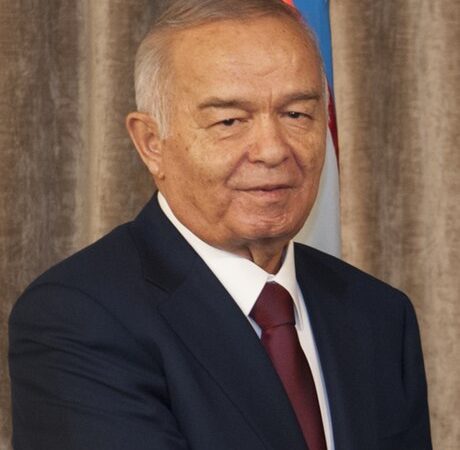Karimov was born in Samarkand to Uzbek parents who were civil servants. According to official data his father is Abdug’ani Karimov, an Uzbek, and his mother is Sanobar Karimova, a Tajik. But according to unofficial data his biological father was Bukharan Jewish.[8] He was sent to an orphanage in 1941, brought back in 1942, and then returned to the orphanage in 1945. In 1955, he graduated from high school. In 1960, he graduated from the Central Asian Polytechnic Institute (now Tashkent State Technical University) with a degree in mechanical engineering.[9] He began work as an engineer, eventually joining the Ministry of Water Resources of the Uzbek Soviet Socialist Republic. In 1967, he earned a master’s degree in economics from Tashkent State University of Economics.[9]
From 1966 to 1986, he worked his way up the ranks in the Uzbek State Planning Committee, from chief specialist, to department head, to Minister of Finance of the Uzbek SSR, chairman of the State Planning Committee and deputy chairman of the Council of Ministers of the Uzbek SSR.[9]
In 1986, Karimov assumed the post of first secretary of the Kashkadarya Regional Committee of the Communist Party of Uzbekistan Committee of the Communist Party of the Uzbek SSR. In 1989, he became first secretary of the Central Committee of the Communist Party of the Uzbek SSR, after his predecessor Rafiq Nishonov failed to quell inter-ethnic clashes and instability in the Fergana Region.[10] From 1990 to 1991, he served as a member of the Central Committee and Politburo. On 24 March 1990, he was elected the first President of the Republic by the Uzbek Supreme Soviet.[9]
On 31 August 1991, 10 days after the attempted coup in Moscow, Karimov declared Uzbekistan to be an independent republic, the second of the Central Asian republics to do so (after neighboring Kyrgyzstan); 1 September was declared Uzbekistan’s Independence Day. The Uzbek Communist Party (UCP) changed its name to the People’s Democratic Party of Uzbekistan (PDP). In the December 1991 presidential election, 86 percent of the public cast their votes for Karimov and 12.3 percent for his rival Muhammad Salih, chairman of the Erk (Freedom) Party.[9][11]


